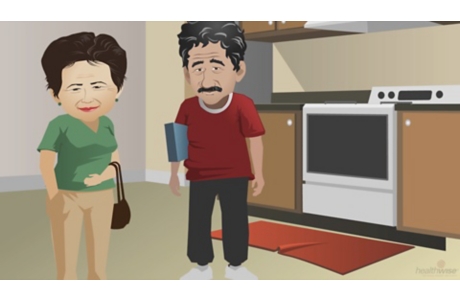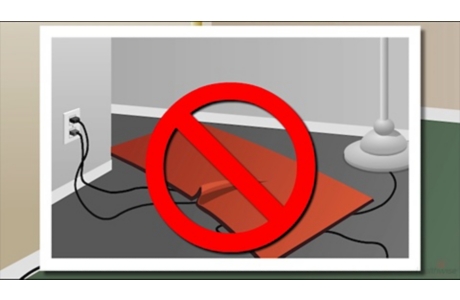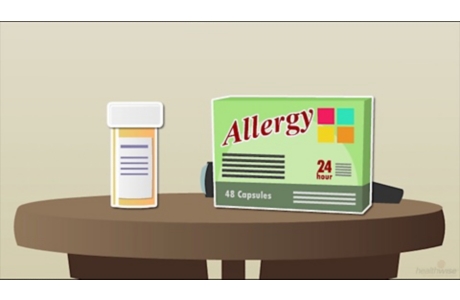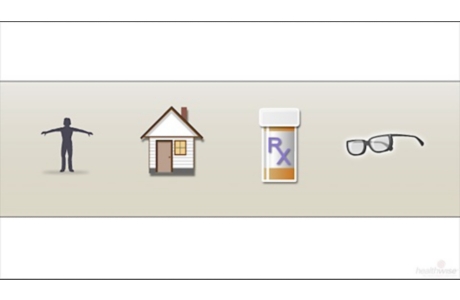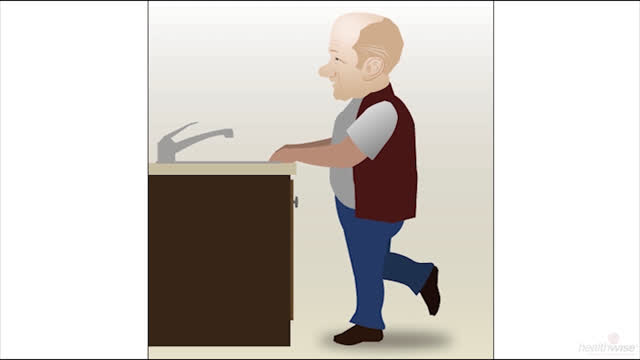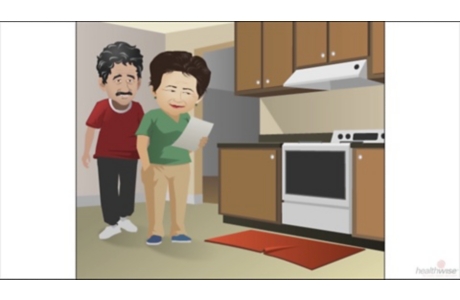Preventing Falls in Older Adults Who Take High-Risk Medicines
Overview
What does "high risk" mean?
"High risk" means that a medicine can cause serious health problems or accidents. Some high-risk medicines include muscle relaxers, anxiety and sleep medicines, opioid pain medicines, and some over-the-counter allergy and cold medicines. They're called high-risk because they may make you feel drowsy or dizzy or affect your balance.
Preventing falls when you take high-risk medicines
If you take a medicine that may make you feel confused, drowsy, or dizzy, pay attention to how it affects your balance and how it makes you feel. When you know what to expect from your medicines, you can take extra care to prevent a fall.
- Learn about your medicines.
- Know the side effects of the medicines that you take. Ask your doctor if the medicines you take can make you sleepy or less alert or affect your balance. For instance, sleeping pills and some medicines for anxiety can affect your balance.
- If you take two or more medicines, talk to your doctor about how they work together. Sometimes combinations of medicines can make you dizzy or sleepy. Either of these can lead to a fall.
- Find out if a treatment without medicine might work for you.
- Make sure you take your medicines properly and safely.
- Make a list of everything you take. Include the dose and when you take it. Keep a copy with you, and take it to each doctor visit.
- Ask your doctor if there are any medicines that you don't need or shouldn't take. And ask if you could lower your dose of any of the medicines.
- Use one drugstore, if you can. Before you fill a new prescription, give the pharmacist your list of medicines. Ask about possible interactions with anything you are taking. If you use more than one drugstore, make sure each one has your list.
- Talk to your doctor about all the side effects you have. Your doctor may want to change your dose or your medicine. Be sure to tell your doctor that you only want to take medicines that you really need, and at the lowest possible dose.
- Learn to move wisely when taking high-risk medicines.
- Stand up slowly. After you stand up, stay still for a few seconds before you move. If you feel dizzy, don't try to walk.
- If you have a problem with balance, walk carefully. Wear low-heeled shoes that fit well and that give your feet good support. Use footwear with nonskid soles.
- If you are very weak, have someone help you get up, walk, and bathe.
- If one of your legs is stronger than the other, get into a tub or shower with your weaker leg first. Get out with your stronger side first.
- Use extra care if you use a cane, a walker, or crutches. They can slip out from under you on smooth, wet surfaces.
- If you have glasses, hearing aids, or both, be sure to use them.
Making your home safer
As you get older, getting around your home safely and avoiding falls can be a challenge. But there are easy things you can do to make your home a lot safer.
- Keep walking paths clear.
- Remove things that you can trip over, such as raised doorway thresholds, throw rugs, and clutter.
- Repair loose carpet or raised areas in the floor.
- Move furniture and electrical cords out of the way.
- Use nonskid floor wax, and wipe up spills right away.
- Keep your house well lit.
- Use night-lights (or keep the overhead light on at night) in areas such as hallways and bathrooms.
- Add extra light switches or use remote switches (such as switches that go on or off when you clap your hands) to make it easier to turn lights on if you have to get up during the night.
- Keep a flashlight by your bed.
- Keep stairways safe.
- Put sturdy handrails on stairways.
- Make sure you have a light at the top and bottom of the stairs.
- Don't leave items on the steps.
- Fix loose, broken, or uneven steps.
- Mark the areas around stairways and ramps with paint or tape, preferably with a high-contrast color.
- Carry a phone or medical alert device with you.
Then you can quickly call for help if you need it.
- Train your pets not to jump or get underfoot.
- If you have pets, keep them in one place at night.
- Think about buying a collar with a bell for your pet so you will know when your pet is nearby.
Related Information
Credits
Current as of: July 31, 2024
Author: Ignite Healthwise, LLC Staff
Clinical Review Board
All Healthwise education is reviewed by a team that includes physicians, nurses, advanced practitioners, registered dieticians, and other healthcare professionals.
Current as of: July 31, 2024
Author: Ignite Healthwise, LLC Staff
Clinical Review Board
All Healthwise education is reviewed by a team that includes physicians, nurses, advanced practitioners, registered dieticians, and other healthcare professionals.
